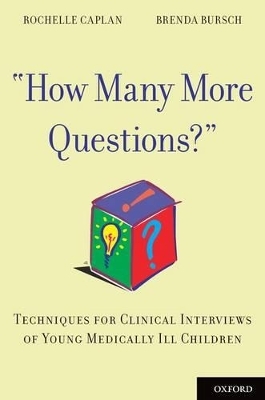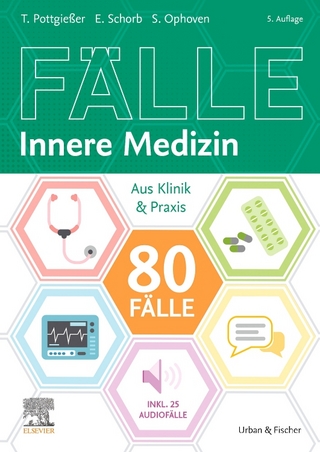
How Many More Questions?
Oxford University Press Inc (Verlag)
978-0-19-984382-4 (ISBN)
How Many More Questions? is useful for pediatric professionals who strive to acquire exceptional clinical interviewing skills and who no longer wish to hear children say, "When are we done?" The wide range of medical and non-medical professionals who work with young ill children, such as pediatricians, neurologists, psychiatrists, psychologists, neuropsychologists, social workers, nurses, child life specialists, as well as interested parents will use this book as a reference guide.
Rochelle Caplan, MD, is Professor Emeritus of Psychiatry in the UCLA Department of Psychiatry and Directed the UCLA Pediatric Neuropsychiatry clinical program for twenty years. She completed her medical studies at the Jerusalem University Hadassah Medical School and her training in adult and child psychiatry at the Tel-Aviv University Sackler Medical School. Dr. Caplan is a pediatric neuropsychiatrist with clinical and research expertise in how children use language to formulate their thoughts and present them to the listener. She has devoted her clinical career to the evaluation and treatment of children with severe behavior/emotional problems due to psychiatric and neurological disorders. Her research has used psycholinguistic, behavior/emotions, and brain imaging measures to study abnormalities in the development of communication skills, behavior/emotions, and brain in children with psychiatric and neurological disorders. Brenda Bursch, PhD, is a medical psychologist with clinical and research interests in pediatric pain, palliative care, somatization, and illness falsification. She received her PhD from Claremont Graduate School in 1990 and is a Professor in the Departments of Psychiatry & Biobehavioral Sciences and Pediatrics at the David Geffen School of Medicine at UCLA, where she has been on faculty since 1994. She is the Clinical Director of the Pediatric Psychiatry Consultation Liaison service, overseeing child psychiatry consultations for pediatric medical inpatients. She has presented lectures at professional conferences within the United States and abroad, and has published numerous scientific articles and book chapters.
Introduction and overview ; Part I Interview basics ; 1. Developmental guidelines ; Part II Application of developmental guidelines: Assessment of emotions/behaviors in pediatric illness ; 2. Overview ; 3. Mood including anger and irritability ; 4. Fears and anxiety ; 5. Attention ; 6. Aggression ; 7. Insight, judgment, and reality testing ; 8. Somatization ; 9. Symptoms associated with autistic spectrum ; Part III Application of the developmental guidelines: A comprehensive assessment of pediatric epilepsy ; 10. Overview ; 11. Biological aspects of pediatric epilepsy ; 12. Psychosocial impact of pediatric epilepsy ; Part IV Application of the developmental guidelines: Specific communication challenges in young ill children ; 13. Overview ; 14. Pediatric pain ; 15. Pediatric iatrogenic trauma symptoms ; 16. Pediatric terminal illness ; Part V Brief review and next steps ; 17. "Guess what? We are done. You are such a good talker and did such a great job!"
| Erscheint lt. Verlag | 8.11.2012 |
|---|---|
| Illustrationen | Amara Leipzig |
| Zusatzinfo | 18 illustrations |
| Verlagsort | New York |
| Sprache | englisch |
| Maße | 234 x 156 mm |
| Gewicht | 485 g |
| Themenwelt | Geisteswissenschaften ► Psychologie ► Klinische Psychologie |
| Medizin / Pharmazie ► Medizinische Fachgebiete ► Neurologie | |
| Medizin / Pharmazie ► Medizinische Fachgebiete ► Pädiatrie | |
| Medizin / Pharmazie ► Medizinische Fachgebiete ► Psychiatrie / Psychotherapie | |
| Studium ► 2. Studienabschnitt (Klinik) ► Anamnese / Körperliche Untersuchung | |
| ISBN-10 | 0-19-984382-1 / 0199843821 |
| ISBN-13 | 978-0-19-984382-4 / 9780199843824 |
| Zustand | Neuware |
| Haben Sie eine Frage zum Produkt? |
aus dem Bereich


